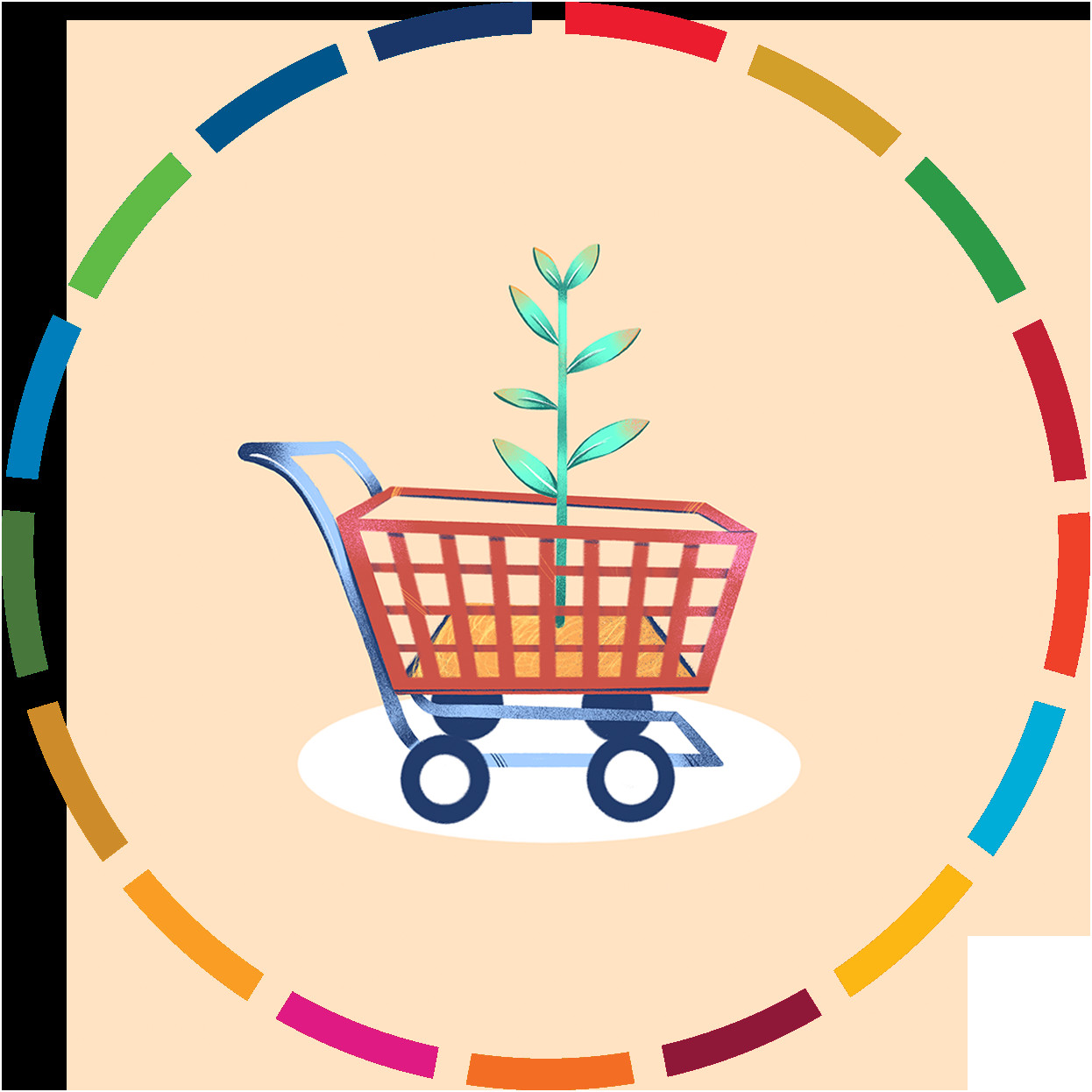Saving the world might seem daunting, but it’s achievable through small, consistent actions that also save you money, and savewhere.net is here to guide you. By adopting eco-friendly habits, you can reduce your carbon footprint, conserve resources, and boost your financial well-being. Explore savewhere.net for practical tips and resources to manage your finances better while contributing to a healthier planet using sustainability, conscious consumption and financial wisdom.
1. What Small Changes Can I Make to Save the World?
You can save the world by making small changes in your daily life, which also help you save money. These include reducing energy consumption, adopting sustainable transportation, eating consciously, and minimizing waste. Every action, no matter how small, contributes to a healthier planet.
Taking small steps to protect the environment not only benefits the planet but also your wallet. These actions collectively create a significant positive impact. For example, using energy-efficient appliances reduces your electricity bill while decreasing your carbon footprint. Choosing to walk, bike, or use public transportation saves money on gas and car maintenance, and supports cleaner air. Reducing meat consumption can lower your grocery bill and decrease the environmental impact of animal agriculture. According to the UN Environment Programme’s Emissions Gap Report, adopting low-carbon lifestyles is crucial for achieving global climate goals.
2. How Can I Reduce Energy Consumption at Home to Save Money?
Reducing energy consumption at home is a great way to save money and protect the environment. Simple steps like switching to LED light bulbs, using energy-efficient appliances, and adjusting your thermostat can make a big difference. Unplug electronics when not in use to eliminate standby power consumption.
Here are several specific actions you can take:
- Switch to LED Lighting: Replace traditional incandescent bulbs with LEDs, which use up to 75% less energy and last much longer.
- Use Energy-Efficient Appliances: When purchasing new appliances, look for the Energy Star label.
- Adjust Your Thermostat: Lowering your thermostat in the winter and raising it in the summer can significantly reduce heating and cooling costs.
- Unplug Electronics: Many electronics consume energy even when turned off.
- Use Cold Water for Laundry: Washing clothes in cold water saves energy and is gentler on your clothes.
- Improve Insulation: Proper insulation in your home can reduce energy loss and lower heating and cooling costs.
- Install a Smart Thermostat: Smart thermostats can learn your habits and adjust temperature settings automatically, saving energy and money.
According to the U.S. Department of Energy, heating and cooling account for about 48% of the energy used in a typical U.S. home. By making these adjustments, you can save a significant amount of money on your energy bills.
 An electric plug being disconnected to save energy
An electric plug being disconnected to save energy
3. What are the Benefits of Renewable Energy Sources?
Switching to renewable energy sources like solar and wind power offers numerous benefits, including reducing your carbon footprint and saving money on electricity bills. Renewable energy is sustainable and helps decrease reliance on fossil fuels, leading to a cleaner and healthier environment.
Here’s a breakdown of the benefits:
- Reduced Carbon Footprint: Renewable energy sources produce little to no greenhouse gas emissions.
- Cost Savings: Solar panels can significantly lower or even eliminate your electricity bills.
- Energy Independence: Generating your own power reduces reliance on utility companies.
- Environmental Benefits: Renewable energy helps combat climate change and reduces air pollution.
- Long-Term Investment: While there’s an initial investment, renewable energy systems offer long-term savings and increased property value.
Many utility companies offer incentives and rebates for switching to renewable energy. Additionally, federal tax credits can further reduce the upfront costs of installing solar panels. To learn more about renewable energy, visit here.
4. How Does Transportation Affect the Environment and How Can I Reduce My Impact?
Transportation is a significant contributor to greenhouse gas emissions. You can reduce your impact by walking, biking, using public transportation, or switching to an electric vehicle. These choices not only lower your carbon footprint but also save you money on fuel and vehicle maintenance.
Here are some effective ways to reduce your transportation impact:
- Walk or Bike: For short distances, walking or biking is a great way to reduce emissions and improve your health.
- Use Public Transportation: Buses, trains, and subways are more efficient than individual cars.
- Carpool: Sharing a ride with others reduces the number of vehicles on the road.
- Switch to an Electric Vehicle (EV): EVs produce zero tailpipe emissions and can be charged with renewable energy.
- Maintain Your Vehicle: Regular maintenance improves fuel efficiency and reduces emissions.
According to the Environmental Protection Agency (EPA), transportation accounts for the largest share of U.S. greenhouse gas emissions. By making conscious transportation choices, you can significantly reduce your environmental impact and save money.
 A person riding a bike as sustainable transportation
A person riding a bike as sustainable transportation
5. What are the Advantages of Electric Vehicles and Hybrid Cars?
Electric vehicles (EVs) and hybrid cars offer several advantages, including lower emissions, reduced fuel costs, and potential tax incentives. EVs produce zero tailpipe emissions, while hybrids combine electric power with gasoline, improving fuel efficiency.
Here’s a comparison of the advantages:
| Feature | Electric Vehicles (EVs) | Hybrid Cars |
|---|---|---|
| Emissions | Zero tailpipe emissions | Lower emissions compared to traditional gasoline cars |
| Fuel Costs | Lower fuel costs (electricity is generally cheaper than gasoline) | Reduced fuel costs due to better fuel efficiency |
| Maintenance | Lower maintenance costs (fewer moving parts) | Similar maintenance costs to traditional cars |
| Tax Incentives | Potential federal and state tax credits | Potential tax credits, but often less than EVs |
| Environmental Impact | Significantly lower carbon footprint, especially when charged with renewable energy | Lower carbon footprint compared to gasoline cars |
| Performance | Instant torque and smooth acceleration | Good fuel economy and reliable performance |
| Range | Range can vary; some models offer over 300 miles on a single charge | Longer range compared to EVs (can switch to gasoline when the battery is depleted) |
| Charging | Requires charging infrastructure; can be charged at home or at public charging stations | Does not require charging; gasoline provides flexibility |
| Cost | Generally higher purchase price, but total cost of ownership can be lower due to fuel savings | Purchase price often lower than EVs, but fuel costs are higher over the lifespan of the vehicle |
Switching to an EV can reduce your carbon footprint by up to 2 tons of CO2e per year, according to the UN. Hybrid vehicles also offer significant savings and environmental benefits.
6. How Can I Travel More Sustainably and Save Money?
Sustainable travel involves making choices that minimize your environmental impact and support local communities. You can travel more sustainably by taking fewer flights, using public transportation, staying in eco-friendly accommodations, and supporting local businesses.
Here are some practical tips:
- Take Fewer Flights: Air travel has a significant carbon footprint. Consider taking trains or buses for shorter distances.
- Use Public Transportation: In cities, use buses, subways, and trams to get around.
- Stay in Eco-Friendly Accommodations: Look for hotels and guesthouses with sustainable practices.
- Support Local Businesses: Eat at local restaurants and buy souvenirs from local artisans.
- Pack Light: Lighter luggage reduces fuel consumption on flights.
- Offset Your Carbon Footprint: If you must fly, consider purchasing carbon offsets to mitigate your impact.
The UN encourages reducing air travel as one of the fastest ways to lower your environmental impact. Taking one less long-haul return flight can reduce your carbon footprint by up to almost 2 tons of CO2e.
 A person enjoying a train ride as a sustainable travel option
A person enjoying a train ride as a sustainable travel option
7. What is the Importance of Reducing, Reusing, and Recycling?
Reducing, reusing, and recycling are essential for minimizing waste and conserving resources. Reducing consumption lowers the demand for new products, reusing items extends their lifespan, and recycling turns waste into valuable materials.
Here’s a breakdown of the benefits:
- Reduce: Buy less and choose products with minimal packaging.
- Reuse: Find new uses for old items and avoid single-use products.
- Recycle: Properly dispose of recyclable materials to conserve resources.
Plastics, for example, generated 1.8 billion metric tons of greenhouse gas emissions in 2019, according to the UN. By reducing, reusing, and recycling, you can significantly decrease your environmental impact and save money.
8. How Does My Diet Impact the Environment and What Can I Do About It?
Your diet has a significant impact on the environment. Eating more vegetables, fruits, whole grains, and legumes, and less meat and dairy, can significantly lower your environmental impact. Plant-based foods generally require less energy, land, and water to produce.
Here are some ways to eat more sustainably:
- Eat More Plant-Based Foods: Reduce your consumption of meat and dairy.
- Buy Local and Seasonal Produce: This reduces transportation emissions and supports local farmers.
- Reduce Food Waste: Plan your meals and use leftovers to minimize waste.
- Grow Your Own Food: Start a garden to grow some of your own fruits and vegetables.
Shifting from a mixed to a vegetarian diet can reduce your carbon footprint by up to 500 kilograms of CO2e per year, according to the UN. A vegan diet can reduce it even further, up to 900 kilograms.
 A fork and carrot representing a plant-based diet
A fork and carrot representing a plant-based diet
9. How Can I Reduce Food Waste and Save Money on Groceries?
Reducing food waste is an easy way to save money and help the environment. By planning your meals, storing food properly, and using leftovers creatively, you can minimize waste and reduce your grocery bill.
Here are some practical tips:
- Plan Your Meals: Create a weekly meal plan to avoid buying more food than you need.
- Store Food Properly: Use airtight containers and store food in the refrigerator to extend its shelf life.
- Use Leftovers: Get creative with leftovers and turn them into new meals.
- Compost Food Scraps: Compost vegetable scraps, coffee grounds, and other food waste to enrich your garden soil.
- Buy Only What You Need: Avoid impulse purchases and stick to your shopping list.
Cutting your food waste can reduce your carbon footprint by up to 300 kilograms of CO2e per year, according to the UN. Additionally, you’ll save money on groceries and reduce the amount of waste sent to landfills.
10. Why Should I Plant Native Species in My Garden?
Planting native species in your garden supports local ecosystems and biodiversity. Native plants are adapted to the local climate and soil conditions, requiring less water and fertilizer. They also provide food and habitat for native insects, birds, and other wildlife.
Here are some reasons to plant native species:
- Supports Local Ecosystems: Native plants provide food and habitat for native wildlife.
- Requires Less Maintenance: Native plants are adapted to local conditions and require less water and fertilizer.
- Promotes Biodiversity: Planting native species helps maintain a healthy and diverse ecosystem.
- Reduces Chemical Use: Native plants are more resistant to pests and diseases, reducing the need for pesticides and herbicides.
By planting native species, you can create a beautiful and sustainable garden that benefits both the environment and your local community.
 Arms around a vase of native plants in a garden
Arms around a vase of native plants in a garden
11. How Does Cleaning Up My Environment Help Save the World?
Cleaning up your environment helps protect humans, animals, and plants from the harmful effects of improperly discarded garbage. By properly disposing of waste, educating others, and participating in local clean-ups, you can contribute to a healthier and more sustainable planet.
Here are some ways to clean up your environment:
- Properly Dispose of Waste: Use trash cans and recycling bins to dispose of waste properly.
- Educate Others: Encourage friends, family, and neighbors to dispose of waste properly.
- Participate in Local Clean-Ups: Join community clean-up events to remove litter from parks, rivers, and beaches.
- Reduce Littering: Avoid littering and pick up any litter you see.
Every year, people throw out 2 billion tons of trash, according to the UN. By cleaning up your environment, you can help reduce pollution and protect the health of your community.
 A person holding a bag of trash and smiling after cleaning up the environment
A person holding a bag of trash and smiling after cleaning up the environment
12. How Can I Use My Money to Support Environmentally Friendly Products?
Everything you spend money on affects the planet. You can support companies that use resources responsibly and are committed to cutting their gas emissions and waste. By choosing environmentally friendly products and services, you can reduce your environmental impact and promote sustainable practices.
Here are some ways to use your money wisely:
- Choose Sustainable Products: Look for products made from recycled materials or with minimal packaging.
- Support Environmentally Conscious Companies: Buy from companies committed to sustainability and ethical practices.
- Invest in Green Energy: Invest in renewable energy companies or funds.
- Divest from Fossil Fuels: Ensure your savings are not invested in environmentally harmful industries.
Making sure your savings are invested in environmentally sustainable businesses can greatly reduce your carbon footprint, according to the UN. By using your money to support environmentally friendly products, you can make a positive impact on the planet.
 A shopping cart with a plant growing out of it, symbolizing eco-friendly products
A shopping cart with a plant growing out of it, symbolizing eco-friendly products
13. How Can Speaking Up Help Save the World?
Speaking up and encouraging others to take action is one of the quickest and most effective ways to make a difference. Talk to your neighbors, colleagues, friends, and family. Let business owners know you support bold changes, from plastics-free products and packaging to zero-emissions vehicles.
Here are some ways to speak up:
- Talk to Others: Share information about environmental issues and encourage others to take action.
- Support Businesses with Sustainable Practices: Patronize businesses committed to sustainability.
- Contact Elected Officials: Urge your representatives to support environmental policies.
- Join Environmental Organizations: Participate in advocacy efforts to promote environmental protection.
Climate action is a task for all of us, according to the UN. No one can do it alone, but we can do it together.
 A person holding a megaphone to speak up about climate action
A person holding a megaphone to speak up about climate action
14. How Can I Incorporate Sustainable Practices into My Daily Routine?
Incorporating sustainable practices into your daily routine can be simple and rewarding. Start by making small changes, such as bringing reusable bags to the grocery store, using a reusable water bottle, and turning off lights when you leave a room. Over time, these habits will become second nature and you can continue to find new ways to live more sustainably.
Here are some practical tips for incorporating sustainability into your daily life:
- Use Reusable Bags: Bring reusable bags when you go shopping to reduce plastic waste.
- Carry a Reusable Water Bottle: Avoid buying single-use plastic water bottles by carrying a reusable bottle.
- Turn Off Lights: Save energy by turning off lights when you leave a room.
- Use Reusable Coffee Cups: Bring a reusable cup to your local coffee shop.
- Choose Sustainable Transportation: Walk, bike, or use public transportation whenever possible.
- Reduce Food Waste: Plan your meals and use leftovers to minimize waste.
- Recycle Properly: Make sure you are properly sorting your recyclables.
- Buy Sustainable Products: Choose products made from recycled materials or with minimal packaging.
By integrating these practices into your daily routine, you can make a significant impact on the environment and contribute to a more sustainable future.
15. What Resources Can Help Me Stay Informed About Sustainability?
Staying informed about sustainability is crucial for making informed decisions and taking effective action. Numerous resources are available to help you learn more about environmental issues, sustainable practices, and climate action.
Here are some valuable resources:
- UN Environment Programme (UNEP): Provides information and resources on various environmental issues.
- U.S. Environmental Protection Agency (EPA): Offers information on environmental regulations, pollution prevention, and sustainable practices.
- Consumer Financial Protection Bureau (CFPB): Offers educational materials on financial literacy and responsible spending.
- Savewhere.net: Your go-to website for tips and resources to save money while making sustainable choices.
- University Research: Research from universities often provides valuable insights into environmental and economic issues.
By staying informed, you can make a greater impact and inspire others to join you in creating a sustainable future.
16. How Can Savewhere.net Help Me Save Money and Save the World?
Savewhere.net offers a variety of resources to help you save money while making sustainable choices. Our website provides tips and strategies for reducing your expenses in various areas of your life, such as shopping, dining, travel, and home energy. We also highlight eco-friendly products and services that can help you reduce your environmental impact.
Here are some ways Savewhere.net can help:
- Money-Saving Tips: Discover practical tips for reducing your expenses in all areas of your life.
- Eco-Friendly Product Recommendations: Find sustainable products and services that can help you reduce your environmental impact.
- Financial Literacy Resources: Access educational materials to improve your financial literacy and make informed decisions.
- Community Support: Connect with like-minded individuals who are passionate about saving money and protecting the environment.
- Exclusive Deals and Discounts: Find special offers and discounts on eco-friendly products and services.
Visit Savewhere.net today to start saving money and making a positive impact on the planet. Together, we can create a more sustainable and prosperous future. Address: 100 Peachtree St NW, Atlanta, GA 30303, United States. Phone: +1 (404) 656-2000. Website: savewhere.net.
17. What Government Programs and Incentives Support Sustainable Living?
Numerous government programs and incentives are available to support sustainable living and encourage eco-friendly practices. These programs offer financial assistance, tax credits, and other benefits to individuals and businesses that adopt sustainable practices.
Here are some examples of government programs and incentives:
- Federal Tax Credits for Renewable Energy: The federal government offers tax credits for installing solar panels, wind turbines, and other renewable energy systems.
- State and Local Rebates for Energy Efficiency: Many states and local governments offer rebates for purchasing energy-efficient appliances, improving home insulation, and making other energy-saving upgrades.
- Electric Vehicle (EV) Incentives: The federal government and many states offer tax credits and rebates for purchasing electric vehicles.
- Sustainable Agriculture Programs: The U.S. Department of Agriculture (USDA) offers programs to support sustainable farming practices, such as organic farming and conservation tillage.
- Green Building Programs: The U.S. Green Building Council (USGBC) offers LEED certification for buildings that meet certain sustainability standards.
By taking advantage of these programs and incentives, you can save money and support sustainable practices.
18. How Can I Get My Community Involved in Sustainability Efforts?
Getting your community involved in sustainability efforts is a powerful way to amplify your impact and create a more sustainable future. By working together, you can address local environmental issues, promote sustainable practices, and inspire others to take action.
Here are some ways to engage your community:
- Organize Community Clean-Ups: Host events to remove litter from parks, rivers, and beaches.
- Start a Community Garden: Create a shared garden where residents can grow their own fruits and vegetables.
- Promote Recycling Programs: Encourage residents to recycle properly and provide resources for recycling education.
- Host Sustainability Workshops: Offer workshops on topics such as energy efficiency, water conservation, and sustainable living.
- Support Local Businesses: Patronize businesses committed to sustainability and ethical practices.
- Advocate for Sustainable Policies: Urge local officials to adopt policies that support sustainability.
By engaging your community, you can create a ripple effect and inspire widespread adoption of sustainable practices.
19. What are the Long-Term Benefits of Living a Sustainable Lifestyle?
Living a sustainable lifestyle offers numerous long-term benefits, both for individuals and the planet. By adopting sustainable practices, you can improve your health, save money, reduce your environmental impact, and contribute to a more prosperous and equitable future.
Here are some of the long-term benefits:
- Improved Health: Sustainable practices such as eating a plant-based diet, walking or biking, and reducing exposure to pollution can improve your physical and mental health.
- Financial Savings: Sustainable practices such as reducing energy consumption, minimizing waste, and choosing sustainable transportation can save you money in the long run.
- Environmental Protection: Sustainable practices help protect the environment by reducing pollution, conserving resources, and mitigating climate change.
- Community Resilience: Sustainable communities are more resilient to environmental and economic shocks.
- Social Equity: Sustainable practices promote social equity by ensuring that everyone has access to clean air, clean water, and a healthy environment.
- Enhanced Quality of Life: Living a sustainable lifestyle can enhance your quality of life by fostering a sense of connection to nature, promoting community engagement, and providing a sense of purpose.
By embracing sustainability, you can create a better future for yourself, your community, and the planet.
20. What Are Some Common Misconceptions About Sustainable Living?
Several misconceptions about sustainable living can deter people from adopting eco-friendly practices. Addressing these misconceptions is essential to encourage more people to embrace sustainability.
Here are some common misconceptions and the realities:
- Misconception: Sustainable living is too expensive.
- Reality: Many sustainable practices, such as reducing energy consumption, minimizing waste, and choosing sustainable transportation, can save you money in the long run.
- Misconception: Sustainable living requires too much effort.
- Reality: Sustainable living can be integrated into your daily routine with simple changes that require minimal effort.
- Misconception: Sustainable living is only for environmental activists.
- Reality: Sustainable living is for everyone who wants to improve their health, save money, and protect the planet.
- Misconception: My individual actions won’t make a difference.
- Reality: Every action, no matter how small, contributes to a collective impact that can create a more sustainable future.
- Misconception: Sustainable products are less effective.
- Reality: Many sustainable products are just as effective as conventional products, and some are even more effective.
By dispelling these misconceptions, we can encourage more people to embrace sustainable living and create a more sustainable future.
FAQ: How to Help Save The World
- How can I reduce my carbon footprint at home?
- You can reduce your carbon footprint by switching to LED lighting, using energy-efficient appliances, adjusting your thermostat, and unplugging electronics when not in use.
- What are the best renewable energy sources for homeowners?
- Solar panels and wind turbines are excellent renewable energy sources for homeowners, offering long-term savings and environmental benefits.
- How can I travel more sustainably?
- You can travel more sustainably by taking fewer flights, using public transportation, staying in eco-friendly accommodations, and supporting local businesses.
- What are the environmental benefits of eating a plant-based diet?
- Eating a plant-based diet reduces greenhouse gas emissions, conserves water, and requires less land compared to meat and dairy production.
- How can I reduce food waste at home?
- You can reduce food waste by planning your meals, storing food properly, using leftovers creatively, and composting food scraps.
- Why is it important to plant native species in my garden?
- Planting native species supports local ecosystems, requires less maintenance, and promotes biodiversity.
- How can I use my money to support environmentally friendly products?
- You can support environmentally friendly products by choosing sustainable brands, investing in green energy, and divesting from fossil fuels.
- What government programs support sustainable living?
- Government programs offer tax credits and rebates for renewable energy systems, energy-efficient appliances, and electric vehicles.
- How can I get my community involved in sustainability efforts?
- You can engage your community by organizing clean-ups, starting a community garden, and promoting recycling programs.
- What are the long-term benefits of living a sustainable lifestyle?
- Living sustainably improves your health, saves money, protects the environment, and contributes to a more equitable future.
Conclusion: Save the World and Your Wallet with Savewhere.net
Saving the world and saving money are not mutually exclusive; they can go hand in hand with the right strategies and resources. By adopting sustainable practices in your daily life, you can reduce your environmental impact and boost your financial well-being. Savewhere.net is your trusted partner in this journey, offering practical tips, valuable resources, and a supportive community to help you achieve your goals.
We encourage you to explore our website and discover the many ways you can save money while making a positive impact on the planet. Whether you’re looking for tips on reducing energy consumption, finding eco-friendly products, or improving your financial literacy, Savewhere.net has you covered. Join our community today and start making a difference! Visit savewhere.net, explore the tips and resources, and connect with like-minded individuals. Together, we can create a sustainable and prosperous future for all. Take action now and be a part of the solution.
